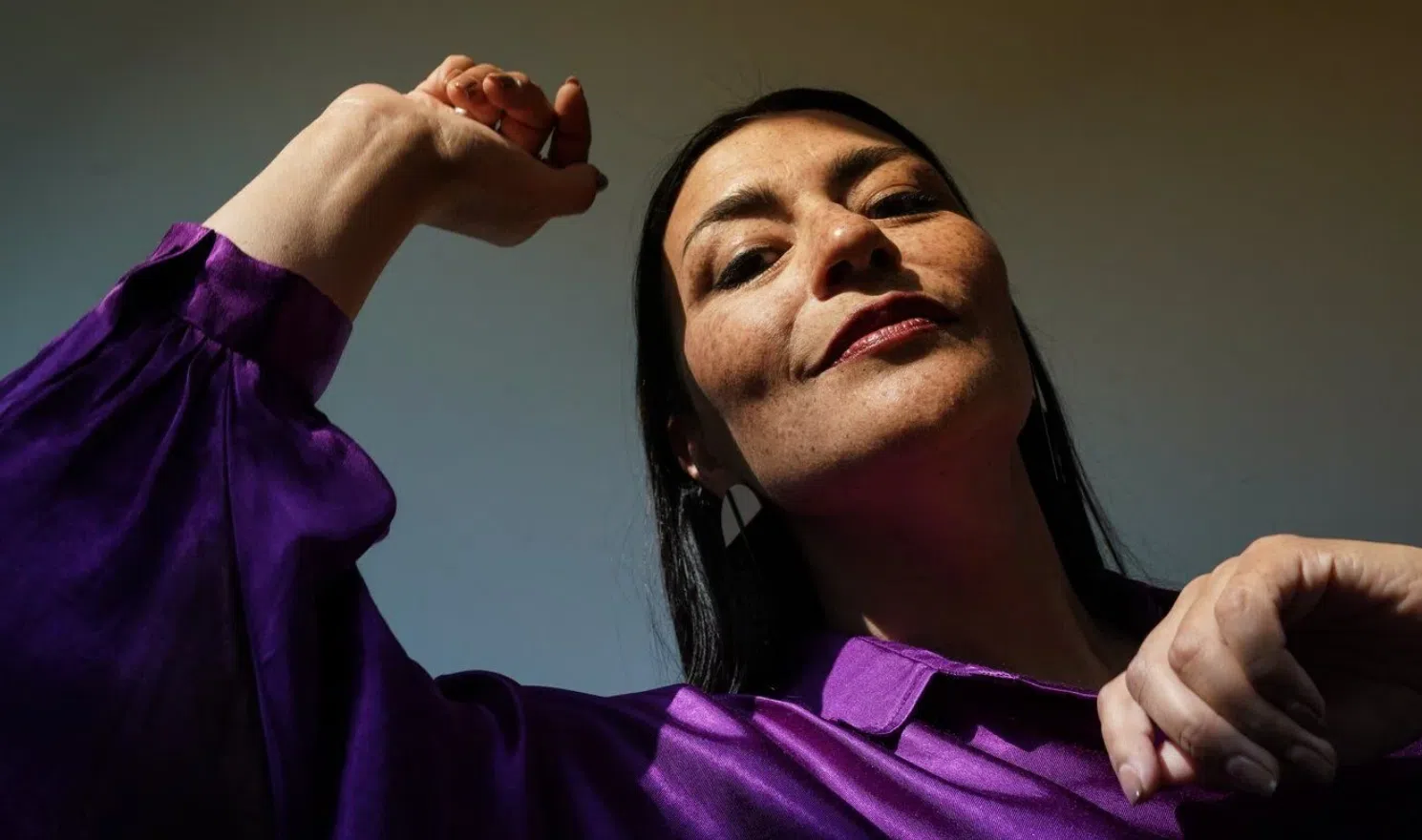
When Inuk singer Elisapie set out to record her pop covers album “Inuktitut,” she wasn’t planning to be a part of history at the Juno Awards.
Yet this weekend, the Montreal singer-songwriter will head to Vancouver to help mark a significant milestone for language representation.
For the first time in its 55-year history, the Junos have elevated projects featuring four different languages to one of its highest pedestals. In the album of the year category, this year’s nominees are sung in English, French, Punjabi, and Inuktitut.
Toronto rapper Sukha’s debut EP “Undisputed” is performed in Punjabi, while “Inuktitut” is a collection of songs made famous by English rock acts but performed by Elisapie in an Indigenous language the Canadian government once tried to eradicate.
“It is a little bit of a miracle,” she suggested as she reflected on her album’s spot among the nominees.
“This is a big category, right? It’s a big deal.”
The award will be handed out at a gala dinner on Saturday rather than the main Junos show, which airs Sunday on CBC and CBC Gem.
Still, it’s an achievement in diversity that some may suggest is long overdue at an awards show that celebrates Canadian music. But even more significant is that all four languages secured their Juno nomination based on support from listeners.
According to the Junos website, album of the year nominees are determined entirely by sales and streaming numbers compiled through data tracker Luminate. Final decisions on category eligibility are made “at the discretion” of the Canadian Academy of Recording Arts and Sciences.
That means each nominated Canadian album has already proven itself by building an audience of local listeners.
For decades, the majority of the non-English language Juno nominees found their recognition mostly in culture-specific corners of the ceremony, such as global music album, francophone and the Indigenous categories.
The power of language is the centerpiece of Elisapie’s 2023 album “Inuktitut,” which takes well-known songs from the likes of Metallica, Cyndi Lauper and Queen, and translates them into her native tongue.
The concept adds layered meaning and aural texture to each track, and connects Elisapie’s childhood in one of Quebec’s northernmost Inuit communities with her memories of beloved English radio hits.
At last year’s awards, the record helped her win the Juno for contemporary Indigenous artist. She also performed her version of Blondie’s “Heart of Glass,” called “Uummati Attanarsimat,” on the live broadcast.
She’s called the experience one of the most empowering moments in her career. Now she wonders if other artists may feel the same way when they sing in their own languages on a national stage.
“There’s so much more beauty in different languages that we must pay attention to,” she said.
“Something is shifting … I think it’s about time. Maybe it’s going to be like that every year now. Hopefully.”
Comments